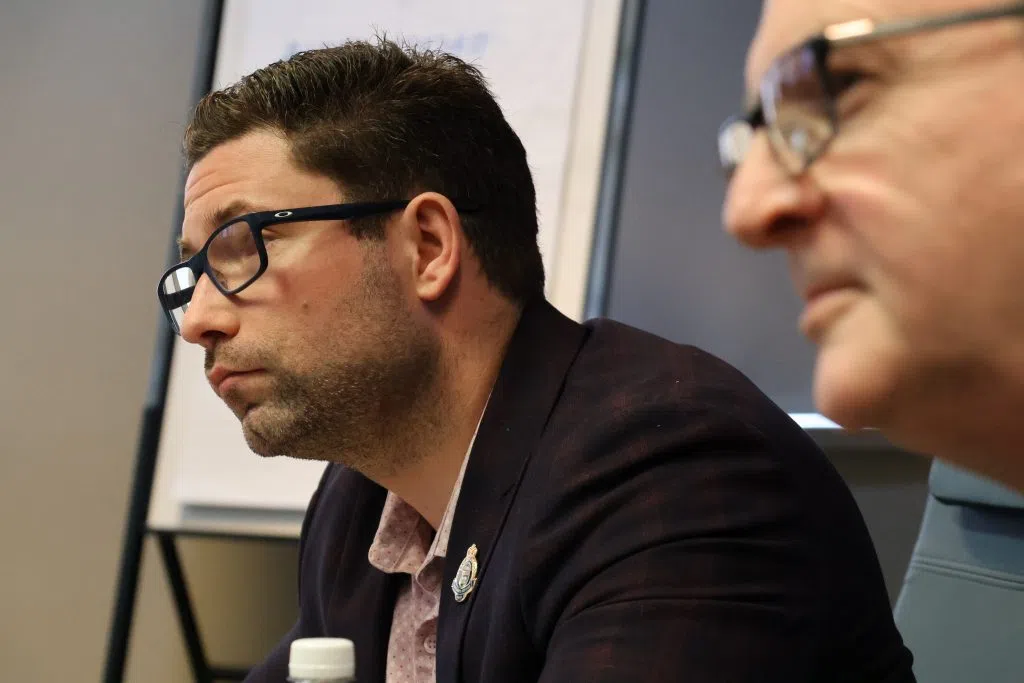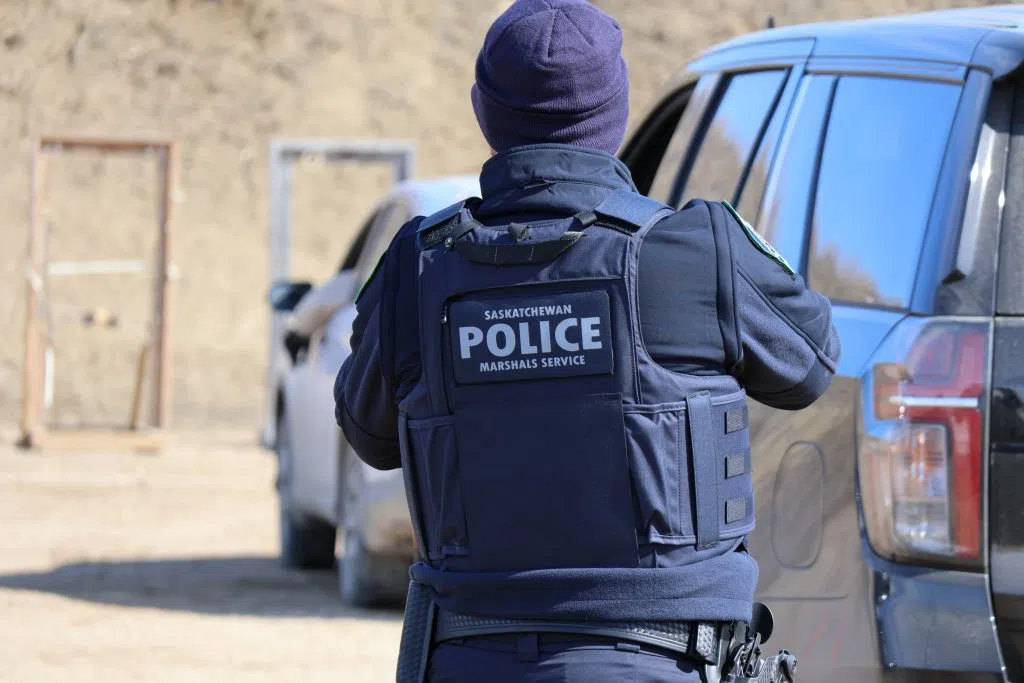
Sask Marshals Sworn In Amid Rising Crime-and Rising Questions
The first class of the Saskatchewan Marshals Service (SMS) were sworn in at the end of April.
The new, provincial law enforcement agency has jurisdiction throughout Saskatchewan, including First Nations, and will reportedly support RCMP, First Nations, and municipal police services.
At an annual cost of $20 million to taxpayers when it’s fully operational, the SMS will be concentrating on gangs, drug trafficking, outstanding warrants, prolific offenders, and any other type of support other police services may need.
The SMS was announced by the Saskatchewan government in 2022 as an answer to crime, but their announcement has come with many public questions about its role and possible effectiveness.
“Saskatchewan continues to see the severity of crime in various areas of the province,” said SMS Deputy Chief Marshal Thomas Sierzycki. “That includes both urban and rural and First Nations communities.”
“Any given time, there’s a tremendous amount of outstanding warrants and people on prolific conditions, so we want to ensure as a police service that we’re going after that mandate,” he said.

According to StatsCan, in 2023 Saskatchewan recorded the highest rural crime severity index (CSI) in the country. And according to the RCMP, the rates of homicides, firearm offences, assaults on the RCMP, and overall assaults in Saskatchewan have all increased in the last 10 years.
“We’ve had several First Nations come to us about what they’re seeing in their respective nations, so we’re seeing a continuing trend across Saskatchewan, and Western Canada, in terms of crimes of those natures,” said Sierzycki. “Our hope is to support and supplement those services, but also engage in proactive type of investigations so communities are feeling safer.”
By the time it’s fully operational, the SMS plans to have 70 officers throughout the province. Currently, there are 17 graduated officers, who the SMS says are from across the country and bring a variety of policing experience. The officers receive specialized marshals training before graduating, said Sierzycki.
In April, before the service was officially operational, a SMS employee was placed on leave, and is being investigated by the Public Complaints Commission. No further details were released, pending the completion of the investigation.
Questions of jurisdiction and accountability have raised concerns.
According to their website, the SMS will have accountability through many oversight bodies, including the Government of Saskatchewan through the Saskatchewan Police Act, and the Minister’s SMS Advisory Council. The advisory council has yet to be appointed, said Sierzycki.
Last fall, the National Police Federation and nearly 90 municipalities across Saskatchewan signed a letter urging Premier Scott Moe to pause the SMS, citing serious concerns about the ‘effectiveness, efficiency, and accountability,’ of the SMS.
“We encourage the Government of Saskatchewan to pause funding on the Marshals Service, reassess needs with stakeholders and community safety partners, and continue to invest in existing policing and public safety resources in the province, including the Saskatchewan RCMP,” National Police Federation president and CEO Brian Sauvé said in a statement in August.
The Saskatchewan RCMP provided a statement to Eagle Feather News on working with the SMS in First Nations and rural communities:
“Though we can’t speak on behalf of the communities we serve, the RCMP remains committed to providing policing services to First Nations and other communities in Saskatchewan and working with them directly to identify and address public safety concerns.
Discussions with the Saskatchewan Marshals Service continue. Until more is learned about the specific responsibilities of the Marshals Service and how it will integrate with other police forces in the province, including the Saskatchewan RCMP, we cannot provide further comment.”
With jurisdiction across the province, Sierzycki said the SMS will be deploy officers to mitigate active threats. They will also be taking a proactive engagement approach prior to policing, he said, so that communities can request SMS supports as they work together with police in that respective jurisdiction.
Sierzycki said the SMS has been working with communities across Saskatchewan, this includes conversations with chiefs, councils, and elders at First Nations, to find how they might best support them.
“We made the promise to First Nations that we would collectively work with their communities unless there’s an emergency situation or an active threat to individuals taking place. Any proactive policing operations, we would be engaging with those communities,” said Sierzycki.
The SMS has met with a variety of Indigenous organizations, including the FSIN and the Office of the Treaty Commissioner (OTC) for consultation and educational purposes.
Kathy Walker, OTC Commissioner, said they met with the SMS regarding training on treaty education, history, and significance of treaties for the SMS recruits.
“The goal is that it will help relations (with First Nations),” said Walker. “For those First Nations that want the Marshals service, I hope that it achieves their objectives of making their communities safer.”
Walker said she is cautiously optimistic about the implementation of the SMS across Saskatchewan, but believes there are other constructive ways to use financial resources.
“I would like to see more investments into the root causes of criminal activity, and actually dealing with the root causes of incarceration rates,” said Walker. “I think that will ultimately help to make communities and Saskatchewan safer for everyone.”


